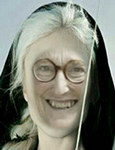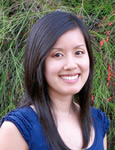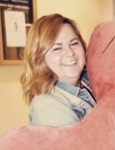A recording of this presentation is available.
Click the button to the right to access the session archive.
Access/download any related materials/handouts
from this session by clicking the button on the right.
24th Annual TCC | Online Conference | April 16-18, 2019
Sustainable Learning, Accessible Technologies, & Diverse Contexts
 Katherine Watson, Coastline Community College, Fountain Valley, California, USA
Katherine Watson, Coastline Community College, Fountain Valley, California, USAA recording of this presentation is available.
Click the button to the right to access the session archive.
Access/download any related materials/handouts
from this session by clicking the button on the right.
A recording of this presentation is available.
Click the button to the right to access the session archive.
 Rachael Inake, Leeward Community College, Pearl City, HI, USA
Rachael Inake, Leeward Community College, Pearl City, HI, USA Susan Wood, Leeward Community College, Pearl City, HI, USA
Susan Wood, Leeward Community College, Pearl City, HI, USAA recording of this presentation is available.
Click the button to the right to access the session archive.
Access/download any related materials/handouts
from this session by clicking the button on the right.
In my project, the purpose of this action research, is to look at the effects of collaboration with asynchronous learners in the course. I have learned using Constructivism and Merrill’s First Principles of Instruction, through repetitive emphasis of diagnostic coding concepts, with engagement and collaboration of experiences, students learn effective coding strategies through practice and feedback regardless of learners attending synchronously or asynchronously. Delivering the course via Zoom, giving students additional attendance options, and using Google Docs to engage students with online collaborative coding practice, encourages confidence and accurate coding skill to be successful with attempting the American Academy of Professional Coders (AAPC) Professional Medical Coding Certification (PMCC) Exam. Eventually the goal is to increase the number of students in the course which contribute to increasing the number students in the Associate’s Degree Track by: 1) targeting students from the Certificate of Achievement Track, 2) recruiting MEDA graduates, who are employed full-time, and 3) recruiting clinically experienced healthcare professionals to take the course thus overall addressing the State’s shortage of Certified Medical Assistants and Certified Professional Coders.
 Mae Dorado, University of Hawaii at Mānoa, Mililani, Hawaii, USA
Mae Dorado, University of Hawaii at Mānoa, Mililani, Hawaii, USAAs a Certified Medical Assistant through the AAMA and a Certified Professional Medical Coder and Approved Instructor with the AAPC, her strength is in teaching clinical and administrative skills at KapCC for the last 17 years. She also guest lectures for the PTA, OTA, Respiratory Therapy and Practical Nursing Program Students in various clinical topics.
In addition to her teaching load, she is the KapCC HOSA (Future Health Professionals) Advisor and has served on the National HOSA Competitive Events Committee for two 3-year terms, is serving on the National HOSA, Inc. Board of Directors. She served on the Hawaii AAPC Board as the New Member Officer for two 1-year terms and currently acts as a consultant to the current Board Members and lastly, is currently on the Advisory Leadership Council of the Hawaii American Lung Association.
A recording of this presentation is available.
Click the button to the right to access the session archive.
 Christine Iannicelli, Ursinus College, Collegeville, PA, USA
Christine Iannicelli, Ursinus College, Collegeville, PA, USA Hailey Wyman, Westminster College , New Wilmington, PA, USA
Hailey Wyman, Westminster College , New Wilmington, PA, USAA recording of this presentation is available.
Click the button to the right to access the session archive.
Access/download any related materials/handouts
from this session by clicking the button on the right.
InfoTCC Hawaii, LearningTimes, & the Learning Design and Technology (LTEC) Department, College of Education, UH-Manoa, collaborate to produce this event. Volunteer faculty and staff worldwide provide additional support. TCCHawaii.org, a Hawaii nonprofit corporation, conducts events for educators and graduate students worldwide relating to current and future practices and research in learning technologies and design. |
Login[login-with-ajax] |